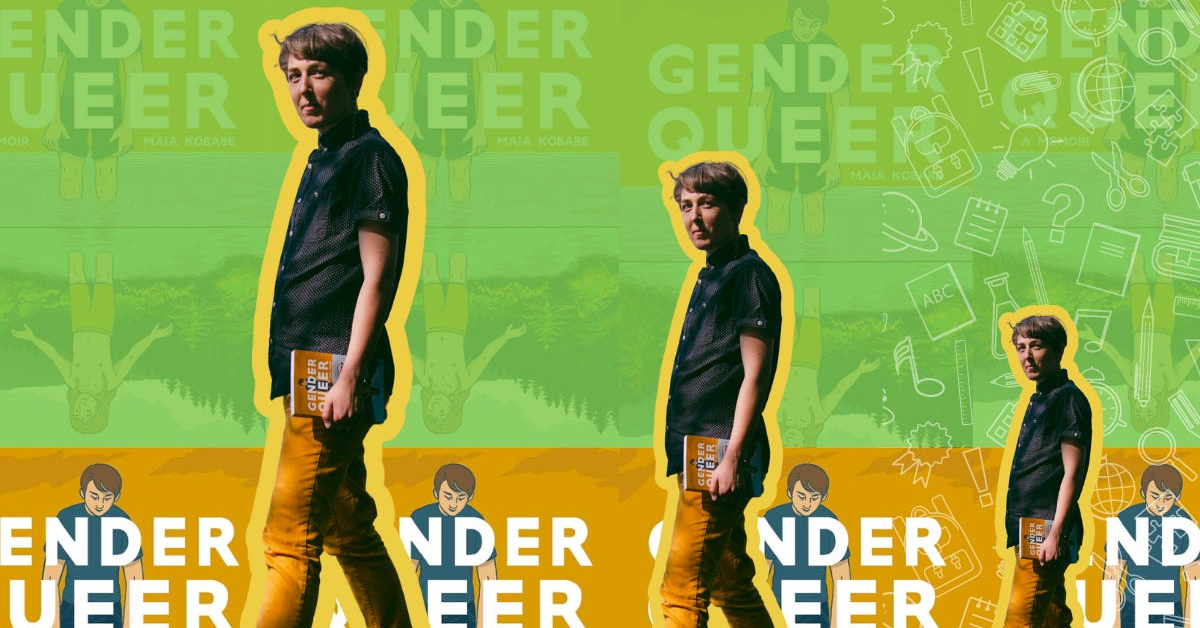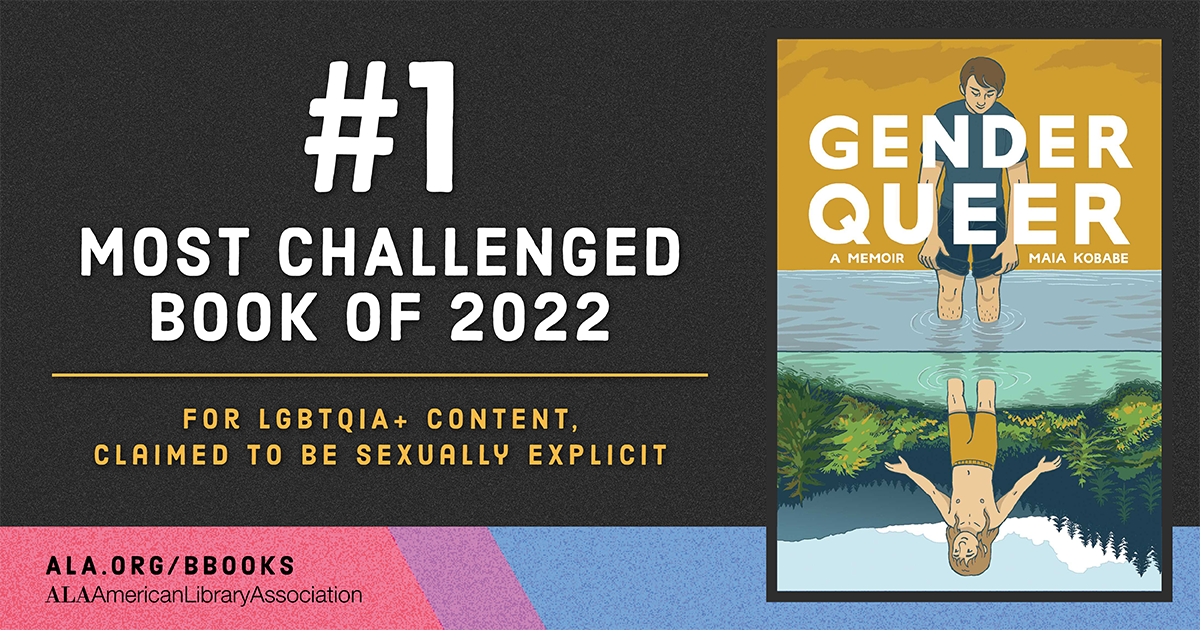
Oct 9, 2025 3:30:12 PM
I wanted to write something cutesy like, “I read Gender Queer, so you don't have to,” but that would be bad advice.
With book bans popping up across America like acne, the best soap would be an informed citizenry.
Instead of participating in second-hand arguments devised to inflame ill-informed people, we should read the books and determine whether the fight is grounded.
“Gender Queer,” a graphic novel by Maia Kokabe, lands at the top of many banned lists because it details the author’s self-discovery journey and exploration of their gender identity.
The illustrations are simple, homespun, and cute. A light touch and a sympathetic tone capture the emotions they’re describing. This could be something I read in the 1970s as a grade-schooler, except queer.
From their earliest days as a homeschooled child, Maia isn't boxed into gender stereotypes like others. Instead, their parents are crunchy, unconventional types who live off the grid, grow food, and share the work of caring for the land, the home, and their children. They speak openly and naturally about the world, and you get the sense that they aren’t burdened by rigid stereotypes of what people should be.
It’s all sweet coming-of-age stuff, with a few hair-raising bumps for an aging father with fluid but conservative-leaning instincts.
It starts on page 32 when Maia’s menstrual cycle begins. Not my favorite illustration. There’s a tame suggestion of masturbation and two nude men embracing and kissing on page 61. On page 125, Maia disrobes for a doctor’s visit, and on page 168, they encounter a strap-on that leaves them dissatisfied.

If I dug deep into my reactions to these pages, it would yield quite a bit of my own “stuff,” my cultural training, faith, fears, and parenting dilemmas, none of which have anything to do with answering the question of whether or not Gender Queer should be in libraries, whether it should exist, or whether its author has a right to be heard by young people who live today the struggle Maia had yesterday.
This is a queer coming-of-age book, and as a person who isn’t queer or coming of age, I appreciate the insight I gleaned from their story, but it was like reading someone else’s email.
I wish every young person could find material that helps them name their emotions, validates their struggles, helps them make sense of their confusion, and equips them with what they need to define themselves when society tries hard to call them what they aren’t.
This book is vital for anyone who’s struggling with their own gender identity or wants to learn more about people who don’t conform to traditional gender roles. But, unfortunately, that makes it dangerous in the eyes of many.
Suppose your kid read this and thought it was okay to be like Maia. How awful that would be.
Suppose the sentiment behind that last sentence was bigoted and the cause of needless suffering in the world.
As one of my readers, you should know I don’t waste your time with pulled punches, so let me get to the bottom of the issue here. Gender Queer is not a problem because concerned parents are raising valid concerns about the age appropriateness of the material. It’s not as if kindergarten teachers are handing this book out to toddlers.
Those concerned parents hate the gays (and the blacks, the immigrants, the Muslims, and so on). Period. Hard stop. I won’t spend too much time convincing you of that because if you need convincing, we aren’t operating at the same level of reality.
The fact is, gender non-conforming people, including members of the trans community, are bullied into exile, often with fatal consequences. As minorities go, they catch hell from all sides.
If I have to side with anyone in these debates, I’ll side with them and their right to feel good about themselves, to be seen, to know that their lives are of value, and to be protected wherever their tormentors might show up.
According to the National Library of Medicine, I’m not an alarmist about the impact of societal rejection of trans people.
Gender-based victimization, discrimination, bullying, violence, being rejected by the family, friends, and community; harassment by intimate partner, family members, police, and public; discrimination and ill treatment at the health-care system are the major risk factors that influence the suicidal behavior among transgender persons.
Gender Queer is jarring in spots and makes me deeply uncomfortable. I’m old, fat, and comfortable. I’ll get over it. It’s not for me. It’s for someone, though. And that someone needs this book.
I don't have to be the audience to defend its right to save someone else’s life.
An award-winning writer, speaker, and blogger, Chris Stewart is a relentless advocate for children and families. Based in outstate Minnesota, Chris is CEO of brightbeam, a nonprofit media group that runs campaigns to highlight policies and practices that support thriving kids. He was the founding Director of the African American Leadership Forum, was an elected member of the Minneapolis Board of Education, and founded and served as the CEO of Wayfinder Foundation. Above all, Chris is a serial parent, a Minecraft enthusiast, and an epic firestarter on Twitter where he has antagonized the best of them on the political left and right. You’ll often see Chris blogging at citizenstewart.com and “tweeting” under the name “Citizen Stewart.”
Few issues in education spark more tension and debate than standardized testing. Are they a tool for equity or a burden on students? A necessary check on school systems or a flawed measure of...
Charter schools are public schools with a purpose. Operating independently from traditional school districts, they're tuition-free, open to all students, and publicly funded—but with more flexibility...
Despite the benefits of a diverse teaching force, prospective teachers of color fall out of our leaky preparation pipeline at every stage: preparation, hiring, induction, and retention. Here’s what...
Ed Post is the flagship website platform of brightbeam, a 501(c3) network of education activists and influencers demanding a better education and a brighter future for every child.
© 2020-2025 brightbeam. All rights reserved.
Leave a Comment